Politics
UN urges Pakistan to halt refugee expulsions after deadly quake in Afghanistan
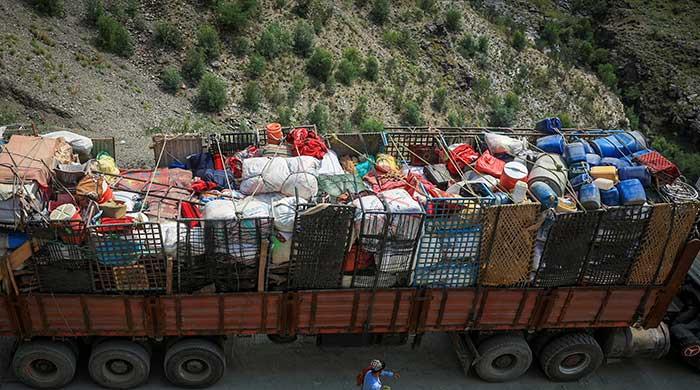
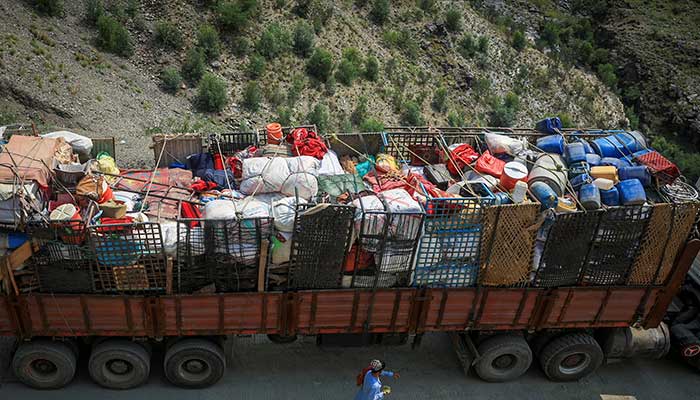
- Pakistan targets 1.3 million PoR holders for deportation crackdown.
- Thousands cross Chaman and Torkham daily, fearing arrest.
- Grandi stresses urgent aid for Afghanistan, calls donor support vital.
ISLAMABAD: The UN refugee chief has urged Pakistan to pause its mass expulsions of Afghan refugees after a devastating earthquake in eastern Afghanistan killed nearly 1,500 people.
“Given the circumstances, I appeal to the Government of Pakistan to pause the implementation of the Illegal Foreigners Repatriation Plan,” Filippo Grandi, UN High Commissioner for Refugees, said on X. He warned that those being forced out are “returning to a disaster zone”.
His appeal came as rescue teams continued struggling to reach survivors after the shallow, magnitude-6.0 quake struck the mountainous region bordering Pakistan late Sunday, collapsing mud-brick homes as families slept.
Taliban government authorities said 1,469 people were killed and more than 3,700 injured, with over 500,000 people affected — one of the country’s deadliest quakes in decades.
Pakistan has hosted Afghans fleeing violence for more than four decades, from the Soviet invasion to the 2021 Taliban takeover. Some refugees were born and raised there, while others have been awaiting relocation to third countries. Various cohorts of Afghans have found differing degrees of stability, including access to work and education.
However, Islamabad, citing a rise in militant attacks and insurgent campaigns, launched a crackdown in 2023 to evict Afghans, describing the population as “terrorists and criminals”. More than 1.2 million Afghans have since been forced to return, including over 443,000 this year alone, according to the United Nations.
The campaign has most recently targeted an estimated 1.3 million refugees holding UNHCR-issued Proof of Registration (PoR) cards, with a September 1 deadline set for them to leave or face arrest and deportation.
UNHCR spokesman Babar Baloch told reporters in Geneva on Tuesday the agency was “preparing for significantly more returns in the coming days” due to the deadline.
Border officials report a sharp rise in crossings since the deadline expired. At the Chaman crossing, more than 4,000 people have left, according to local administrator Habib Bangulzai. In Spin Boldak on the Afghan side, migrant registration official Abdul Latif Hakimi said 250 to 300 families are returning daily since August 31.
At the Torkham crossing further north, more than 6,300 PoR holders returned on Tuesday alone, with nearly 63,000 PoR cardholders recorded entering Afghanistan since April. UNHCR data shows a surge in crossings between 24 and 30 August, with 25,490 returnees, including 13,525 PoR holders.
Analysts say the evictions are designed to pressure Afghanistan’s Taliban administration, which Pakistan accuses of sheltering militants behind a rise in border attacks. The Taliban denies the allegations.
Grandi said aid from donors, including Pakistan, remains “vital and welcome” as Afghanistan grapples with the aftermath of the quake.
Politics
South Korea prosecutors request 10-year term for ex-president
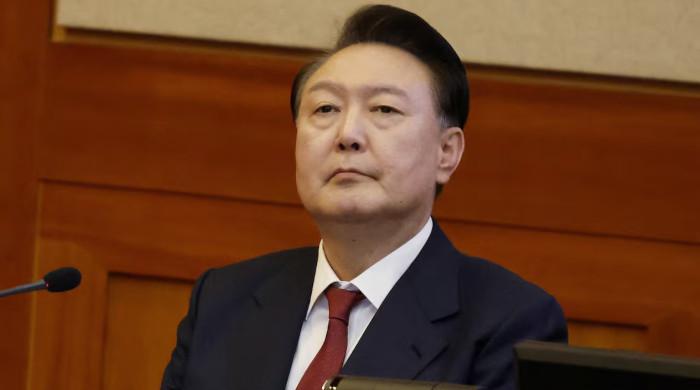
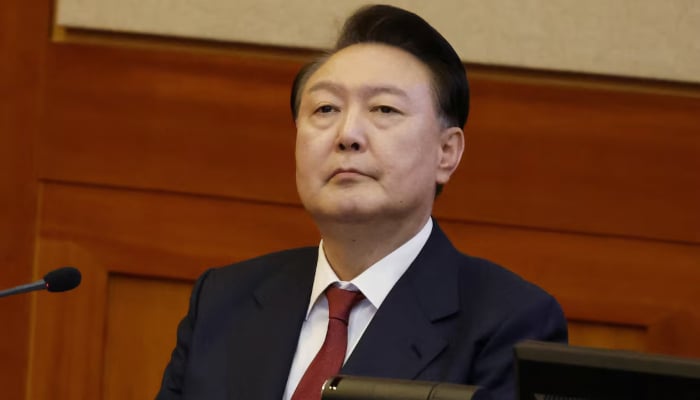
SEOUL: South Korean prosecutors on Friday sought a 10-year prison sentence for ex-president Yoon Suk Yeol, for offences linked to his attempt to impose martial law last year.
Yoon briefly suspended civilian rule in South Korea for the first time in more than four decades on December 3, 2024, prompting massive protests and a showdown in parliament.
Armed soldiers were deployed to parliament under the decree, but the order lasted only around six hours as it was swiftly voted down by opposition MPs, who scaled fences to enter the building. They later impeached Yoon over the martial law declaration.
Since being removed from office in April by the Constitutional Court, he has faced multiple trials for actions linked to his martial law declaration.
The former president was indicted in May for abuse of power over his martial law declaration.
Prosecutors sought a 10-year prison term on Friday for charges including obstruction of justice, after Yoon allegedly excluded cabinet members from a martial law meeting and in January blocked investigators from detaining him.
A Seoul court is expected to deliver a verdict in the case next month, according to Yonhap news agency.
Yoon said this month his decision to declare martial law had been justified in the fight against “pro-China, pro-North Korea, and traitorous activities”.
His three other trials include allegations of leading an insurrection, for which he could face the death penalty if found guilty.
Yoon was the second South Korean president to be removed from office, and the third to be impeached by parliament.
Politics
China’s high-speed rail network passes 50,000km mark

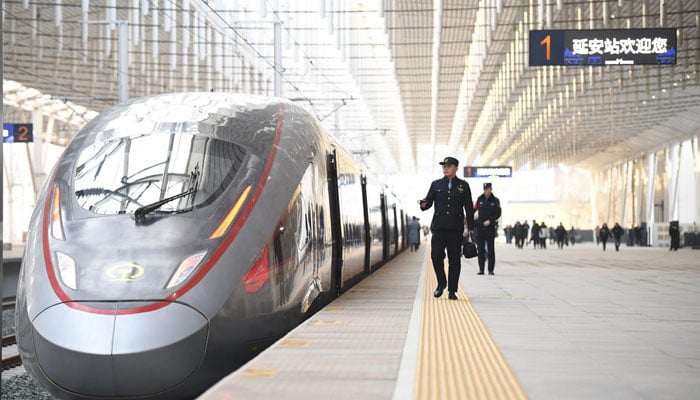
BEIJING: China’s sprawling high-speed rail network passed 50,000 kilometres (31,000 miles) in total operating distance with the opening of a new line on Friday, state media reported.
The country has the world’s largest rail network — one-fifth longer than the circumference of the earth.
The trip begins in the city of Xi’an — home to China’s famed Terracotta Warriors — and ends in Yan’an to its north, state broadcaster CCTV said. Both cities are in northern China’s Shaanxi province.
Some homes were demolished, and displaced residents would receive 5,000 yuan ($700) per household to relocate, local authorities said in 2020 when construction began.
China’s rail network has expanded by around 32% compared to 2020, state-owned China Railway added Friday in a statement.
The Xi’an-Yan’an line spans a total of 299 kilometres and the shortest trip takes 68 minutes, CCTV said.
The C9309 train runs at 350 kilometres (217 miles) per hour, outpacing Japan’s Shinkansen, which has a top speed of 320 kilometres (200 miles) per hour.
Beijing has also been financing railways in other Asian countries under its Belt and Road Initiative, which funds infrastructure projects globally.
Politics
SFJ condemns ‘violent threat’ against Trump by Modi supporters in US
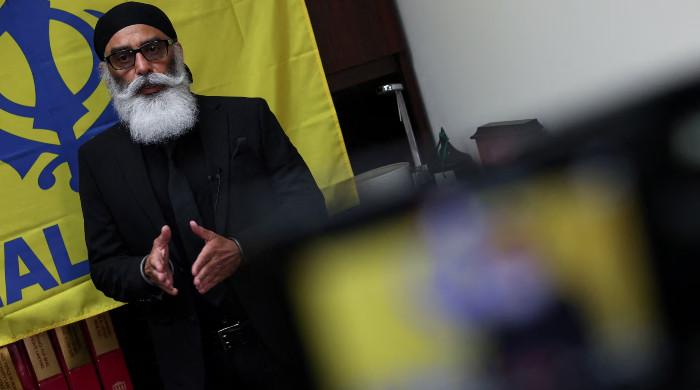
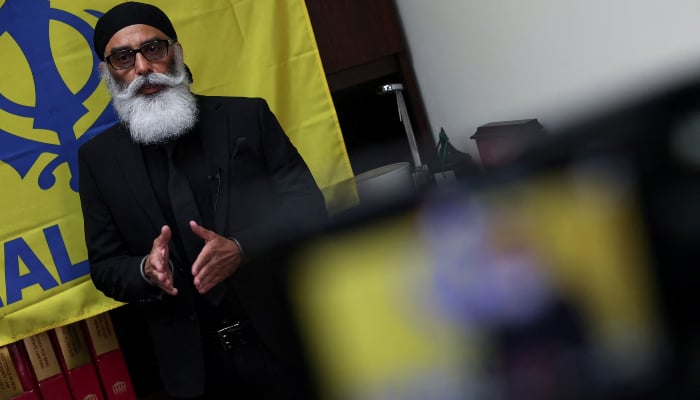
WASHINGTON: Pro-Khalistan Sikhs For Justice (SFJ) has denounced what it described as an “unacceptable escalation” after a call for violence against US President Donald Trump was made by a speaker at an event hosted by ITServe Alliance, drawing applause from some attendees.
A video from an H1B conference in Seattle hosted by ITServe Alliance, the largest H1B advocacy group in the US, has sparked outrage after members mocked Americans, threatened physical violence against the US president and boasted of having more political power than average Americans.
SFJ General Counsel Gurpatwant Singh Pannun said the remarks, which SFJ claims were later amplified online by accounts aligned with Hindutva ideology, constituted a direct challenge to US democratic norms and presidential security.
“A violent threat against the President of the United States is a line that must never be crossed,” Pannun said in a statement. “We are urging accountability for any attempt to normalise political violence on American soil.”
“This crossed a line — a violent threat against the President of the United States from supporters of Modi’s Hindutva extremist ideology is a direct challenge to American sovereignty,” said Pannun. “Modi’s Indo-American H-1B network must be held accountable for normalising political violence inside the US,” the statement emphasised.
SFJ said it has filed a formal complaint with the US Department of Justice and the Federal Bureau of Investigation, requesting a federal investigation into the incitement and its dissemination online. As of publication, federal authorities had not publicly confirmed an investigation.
SFJ urged President Trump to publicly pose what it termed a “loyalty question” concerning Indo-American political allegiances in a conflict involving India under Prime Minister Narendra Modi.
He said: “Will Indo-Americans of Hindu faith bear arms for the United States in a war against Modi’s India?’ The American public has a right to know where the loyalties of Indo-Americans lie — with the US Constitution or with Modi’s extremist ideology.”
“There is no place on American soil for Modi’s violent Hindutva ideology. And if required, Hindutva extremism will be crushed under the full force of the US Constitution,” the SFJ leader said.
SFJ reiterated that the Khalistan Referendum is, in its words, a peaceful and democratic campaign advocating Sikh self-determination in India’s Punjab region. Pannun added that, in a US–India conflict initiated by Washington, pro-Khalistan Sikhs would support the United States.
-

 Fashion1 week ago
Fashion1 week agoIndonesia’s thrift surge fuels waste and textile industry woes
-

 Tech1 week ago
Tech1 week agoT-Mobile Business Internet and Phone Deals
-

 Business1 week ago
Business1 week agoBP names new boss as current CEO leaves after less than two years
-

 Sports1 week ago
Sports1 week agoPKF summons meeting after Pakistani player represents India in kabaddi tournament
-
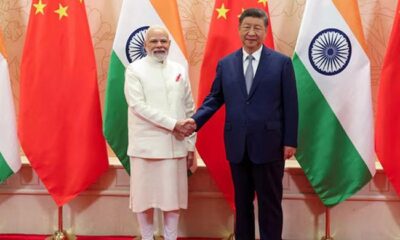
 Entertainment1 week ago
Entertainment1 week agoIndia streamlines visa rules in boost for Chinese professionals
-

 Sports1 week ago
Sports1 week agoUWCL grades for all 18 teams: Leuven get A+; Barça an A-, PSG fail
-
Sports6 days ago
Alabama turned Oklahoma’s College Football Playoff dream into a nightmare
-
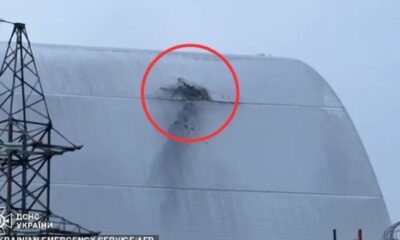
 Entertainment1 week ago
Entertainment1 week agoRadiation fears rise after cracks found in $2 billion Chernobyl shield






